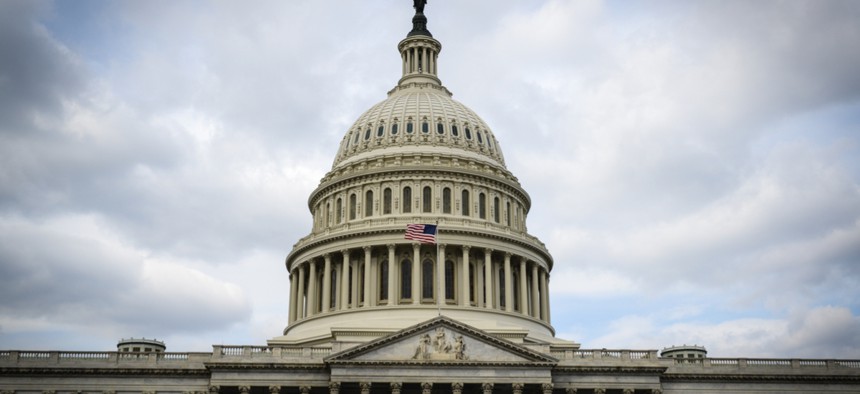Congress on Collision Course Ahead of Shutdown Deadline

Brandon Bourdages/Shutterstock.com
"Puntagon" bill to fund defense for a full year but non-defense for one month is a nonstarter, Democrats say.
House Republicans are moving forward with a plan to fund defense priorities for the remainder of fiscal 2018 but keep domestic programs under a short-term continuing resolution, setting up a clash with Democrats just days ahead of Friday’s deadline to avoid a government shutdown.
Last week, House Finance Committee Chairman Rodney Frelinghuyson, R-N.J., introduced a measure (H.J. Res. 124) that would provide defense appropriations until Sept. 30, 2018, but would continue current spending levels until Jan. 19 for the rest of government. The measure would give lawmakers an additional month to debate how to increase top-line spending caps before automatic spending cuts would occur in accordance with the 2011 Budget Control Act.
The Republican plan could see a vote on the House floor as early as Wednesday. But Democrats, who dubbed the legislation “Puntagon,”have vowed to block the measure in the Senate, where any spending bill requires 60 votes to pass. House Speaker Paul Ryan also attached an additional $81 billion in natural disaster relief to the legislation in an attempt to coax opponents, but it is unclear whether it will have any effect.
Senate Majority Leader Mitch McConnell, R-Ky., on Monday laid out a busy slate of legislation that he said must pass this week. In addition to the spending bill, the list includes the GOP’s tax overhaul bill; reauthorization of the Children’s Health Insurance Program and Title 7 of the Foreign Intelligence Surveillance Act, both of which expire Dec. 31; and a bipartisan measure to stabilize the Affordable Care Act marketplaces.
McConnell reportedly plans to attach that last piece of legislation, which is colloquially known as Alexander-Murray, to the spending package when it reaches the Senate, fulfilling a promise to Sen. Susan Collins, R-Maine, in exchange for her vote on tax reform.
But Politico reported Tuesday that the Obamacare provision could torpedo the bill back in the House, where members of the House Freedom Caucus are loath to approve any measure that could protect the Democratic health care law.
“We’re supposed to stand firm. That’s the deal, we were all told that’s what we agreed to stand for as conference just two weeks ago,” Rep. Jim Jordan, R-Ohio, told Politico. “We’ll see what they send back. But if it’s got Alexander-Murray on it, that’s a big problem for a lot of us. Certainly the Freedom Caucus.”
On the Democratic side, lawmakers still want a bill that funds the government until the end of fiscal 2018, with equal increases to budget caps for defense and non-defense spending. They also are demanding a vote on a bill to codify protections for participants in the Obama administration’s Deferred Action for Childhood Arrivals program, a measure Republican leaders have resisted bringing forward before the end of the year.






